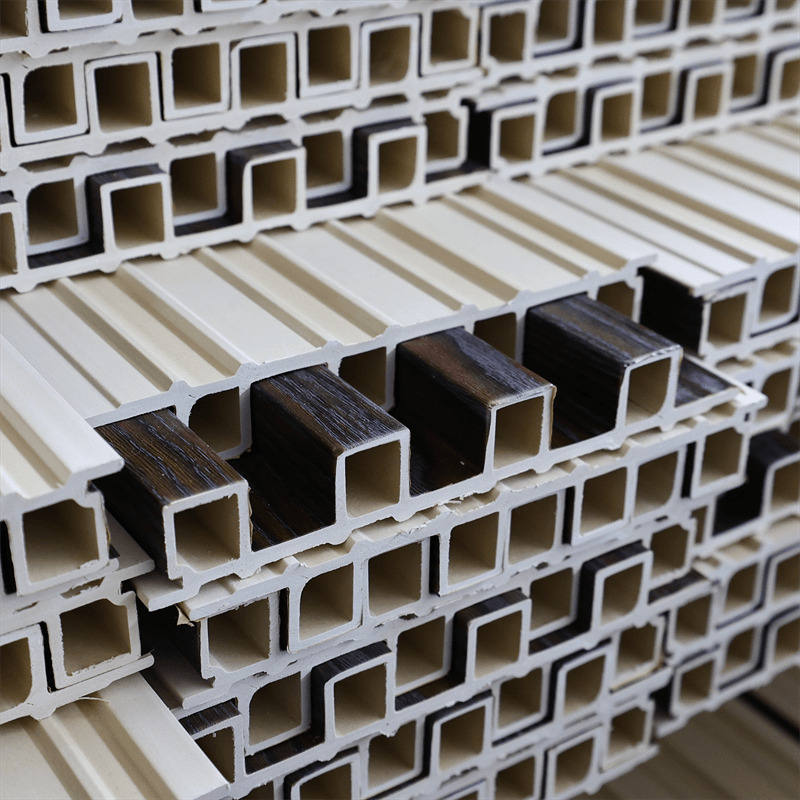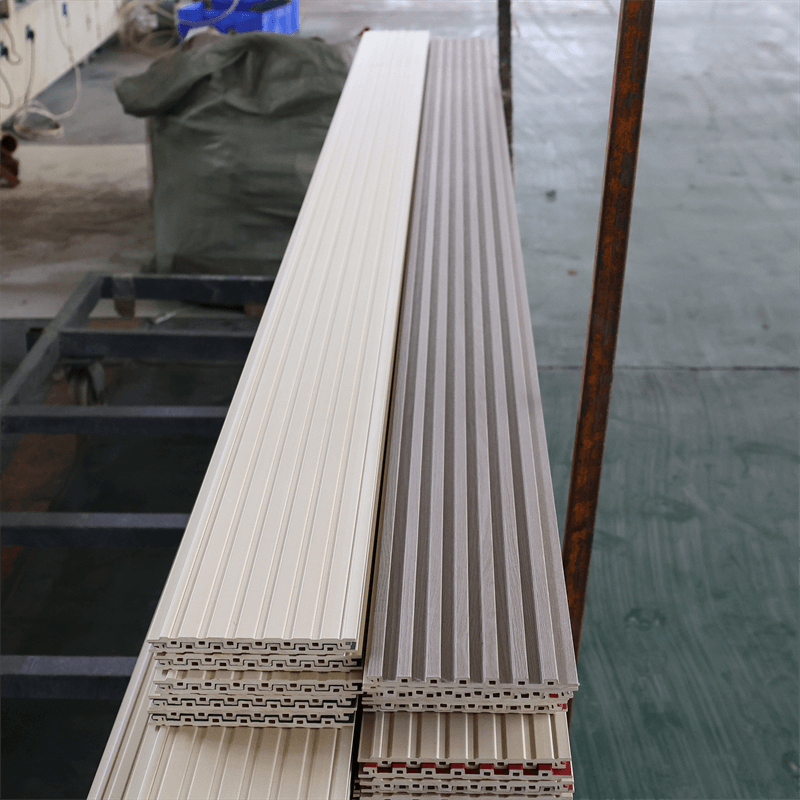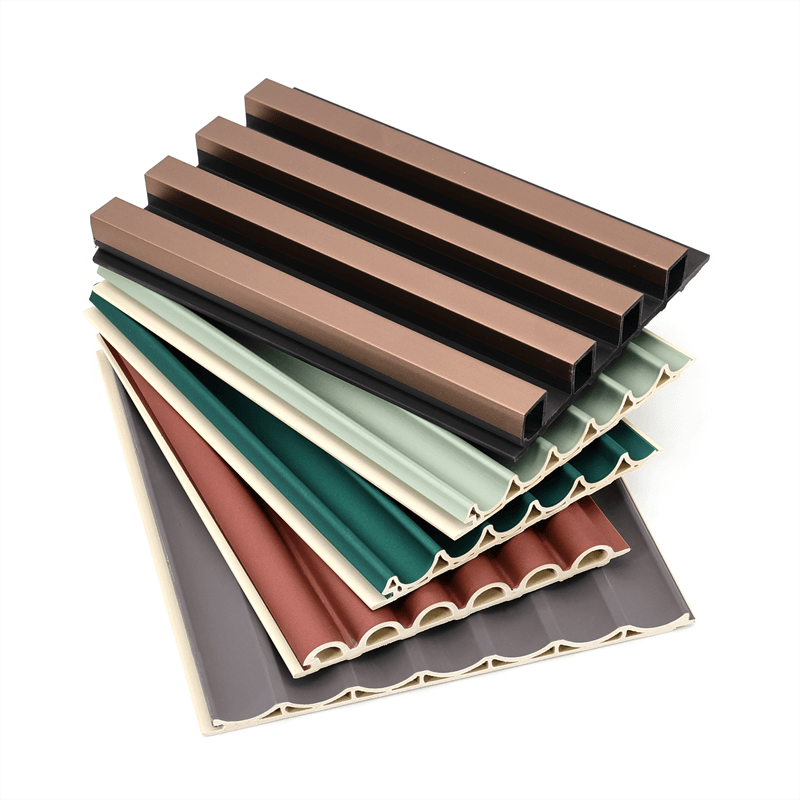In the realm of building materials, safety is of utmost importance. When it comes to interior wall cladding, fire resistance is a crucial factor to consider.
In recent years, Wood Plastic Composite (WPC) wall panels have gained popularity for their aesthetics, durability, and eco-friendly nature.
However, understanding their fire-resistant properties is essential for ensuring the safety of occupants in both residential and commercial buildings.
This essay explores the fire-resistant properties of WPC wall panels, discussing the materials used, testing standards, fire ratings, and the benefits of choosing fire-resistant WPC panels for your construction projects.

I. Understanding the Materials:
WPC wall panels are composed of a blend of wood fibers or flour and thermoplastics, such as polyvinyl chloride (PVC) or polyethylene (PE).
The combination of these materials creates a product that emulates the natural appearance of wood while offering enhanced durability and resistance to moisture.
However, it is crucial to note that the fire resistance of WPC panels can vary depending on the specific formulation and manufacturing process.
II. Fire Testing Standards and Ratings:
To evaluate the fire resistance of building materials, various testing standards and protocols are used.
Two commonly recognized standards for assessing the fire performance of interior wall cladding materials are the ASTM E84 and EN 13501-1 tests.
- ASTM E84: The ASTM E84 test, also known as the “Tunnel Test” or “Steiner Tunnel Test,” measures the flame spread index (FSI) and smoke developed index (SDI) of materials. WPC panels with low flame spread indices and smoke development indices indicate better fire resistance.
- EN 13501-1: The EN 13501-1 test evaluates the reaction to fire performance of construction products. The test assesses several parameters, including ignitability, flame spread, heat release, smoke production, and burning droplets or particles. The resulting fire ratings range from A1 (non-combustible) to F (no performance determined).
III. Fire-Resistant WPC Wall Panels:
To enhance the fire-resistant properties of WPC wall panels, manufacturers have introduced specific modifications and additives to the materials.
- Flame Retardant Additives: Flame retardant additives, such as halogenated compounds or mineral fillers, can be incorporated into the WPC formulation to enhance fire resistance. These additives work by reducing the flammability of the material and slowing down the spread of flames.
- Surface Coatings: Applying fire-resistant coatings to the surface of WPC panels can improve their fire performance. These coatings act as a barrier, inhibiting the ignition and spread of flames.
IV. Benefits of Fire-Resistant WPC Wall Panels:
Choosing fire-resistant WPC wall panels for your construction projects offers several benefits.
- Safety: The primary advantage of fire-resistant WPC panels is enhanced safety. By selecting materials with improved fire performance, you contribute to the overall fire safety of the building, protecting occupants and minimizing potential risks.
- Compliance with Building Codes: Fire-resistant materials, including WPC panels, help meet the stringent fire safety regulations and building code requirements. Compliance with these codes is crucial for obtaining permits and ensuring the longevity and legality of the building.
- Peace of Mind: Incorporating fire-resistant WPC panels provides peace of mind, both for building owners and occupants. Knowing that the materials used in the construction possess reliable fire-resistant properties instills confidence and reassurance.

In addition to their fire-resistant properties, WPC wall panels retain the aesthetic appeal, durability, and eco-friendliness that make them a popular choice for interior wall cladding.
The combination of fire resistance and these inherent benefits makes fire-resistant WPC panels a practical and sustainable solution for a wide range of construction projects.
Fire safety should be a top priority in building design and construction.
The fire-resistant properties of WPC wall panels play a crucial role in ensuring the safety of occupants and compliance with building codes.
By understanding the materials, testing standards, and fire ratings associated with WPC panels, you can make informed decisions when selecting and specifying fire-resistant options for your construction projects.
Incorporating fire-resistant WPC wall panels not only provides enhanced safety but also offers compliance with regulations, peace of mind, and the numerous other benefits associated with WPC materials.
As the demand for sustainable and fire-resistant building materials continues to rise, fire-resistant WPC panels emerge as a reliable and eco-friendly choice for interior wall cladding.
By prioritizing fire safety without compromising on aesthetics and durability, you can create spaces that are both visually appealing and built with the utmost consideration for occupant protection.

